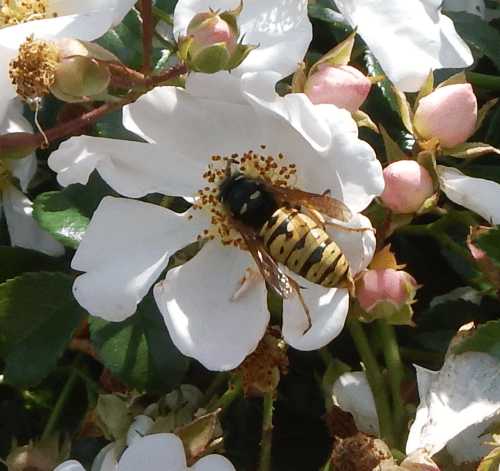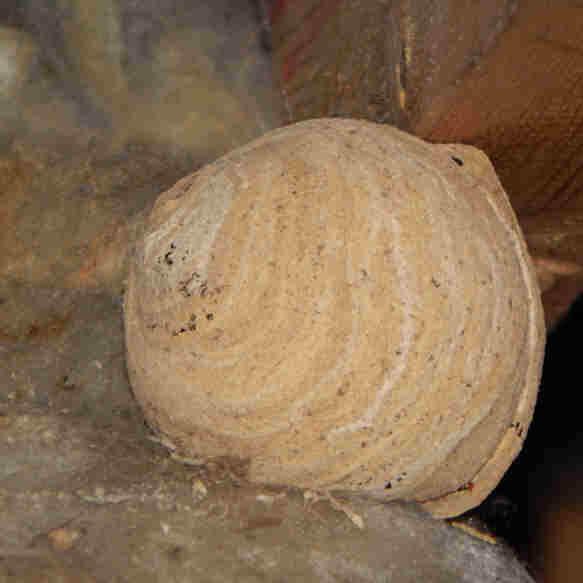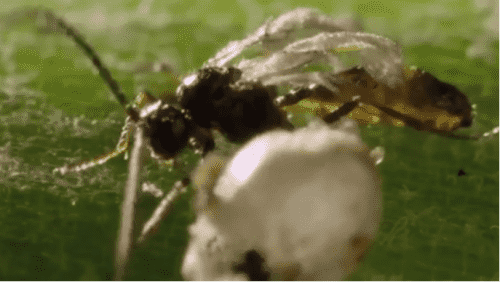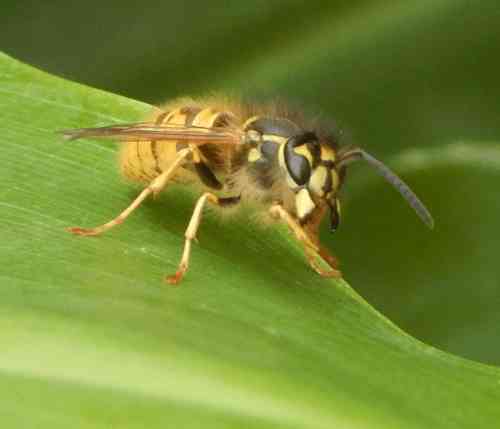How To Deter Wasps Naturally
It is perfectly possible to deter wasps from buildings,
including your home, and to do so naturally and without using Deet or highly
toxic chemicals.
In general, I do not like the notion of killing things, and especially given that wasps are valuable pollinators, and are also excellent as a natural predator of crop eating pests (and given that wasps are going through a hard time too!), personally I think it is better in the first instance, to deter wasps from building a nest in the first place.
How to discourage wasps
Let’s put it this way, if you have to call out assistance, you will be charged, and toxic chemicals may be used, and you’ll have to hope the nest is properly removed (otherwise more may turn up later or next year).
Personally, I leave wasps alone (more about that in a moment), but if you’d like to deter wasps from building a nest, here are my main tips:
1. Purchase a 'Waspinator'!
Waspinators mimic wasp nests, discouraging actual wasps from making a nest (they're very territorial).
Waspinators look a bit like a paper bag. You could try making one yourself, but if you don’t have the time, they are not very expensive to buy and should last a while, unless you choose a paper copy.
They work by tricking wasps into
thinking there is already a colony of wasps in situ. Because wasps are
territorial, Waspinators deter wasps from building a nest in a natural way.
In order for them to be effective, you should hang them in place from your roof, out buildings, or anywhere that might be a potential nesting place, in advance of the ‘wasp season’.
You can also use them as a temporary measure around any area where children may eat or play, such as the picnic table, climbing frame or paddling pool.
2. Cover open windows with fine netting
In this way, the window can be open to allow fresh air into the building, whilst wasps are prevented from entry. Pieces of net curtaining can be purchased cheaply from bargain stores and similar, and taped to the frame of the window.
 Wasp queen.
Wasp queen.
3. Use A Deet-free, Eco-friendly Insect Repellent
There are a few Deet-free, eco-friendly insect & wasp repellents available on the market. You could try a repellent containing Picaridin around the home.
Other ways to deter wasps naturally:
- If you are afraid of wasps, avoid taking fruity or fizzy drinks outside, or ensure they are enclosed and with a straw.
- Avoid bare feet in areas where you are observing lots of wasps.
- Be sure not to seat yourself close to refuse bins – they tend to attract wasps.
- Whilst out on picnics, don’t leave food
uncovered, or you may attract wasps.
- If in the garden (and if your garden is large enough), find a spot where the wasps won't distract or disturb you if possible. Leave a banana skin, over ripe plum in that area - i.e. something that will keep the wasps occupied elsewhere.
- Use tongs or gloves to remove windfalls from out door seating areas, as wasps can sometimes be found in the fruit.
What do I do?
We used to have a nest in a compost heap. It was close to our backdoor, but we ignored the nest and eventually we moved the compost heap and later replaced it, since when, the compost heap has had a bumble bee nest in
it, but no wasps.
However, we had a wasp nest in our attic - this is a picture of it below - and we had no idea at the time, that it was even there!
 We had a wasp nest in our attic - this is a picture of it. We had no idea at that it was even there! The wasps have not returned.
We had a wasp nest in our attic - this is a picture of it. We had no idea at that it was even there! The wasps have not returned.We had a very busy nest of wasps on our allotment some years
ago, and we left them alone.
Wasps are pollinators of my Autumn raspberries along with the bees. I often observe them, pushing their hairy thorax into the flowers, and I find they are too busy getting on with the job of collecting nectar to be bothering me.
I have had some brilliant feedback from people who, having read the information on my site, have tried the 'leave it alone' approach, including a wasp nest by the decking, one in a bird house, and my sister, who had a wasp nest in her chimney.
However, I am also able to remain calm around wasps, and have never, ever been stung (indeed, I even rescue wasps!). Remaining calm is something that not everyone can manage, and I suppose even this would not guarantee that you would not get stung.

Body Snatcher Wasps!
Why are farmers turning to wasps to help them control crop eating pests?
